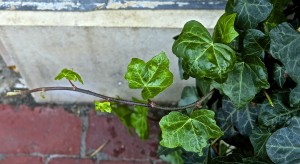
As my wife and I eat breakfast, we play “Something’s Moved.” A garbage can, a street sign, or the Corolla with the orange boot will no longer be in the same spot as it was yesterday, and we’ll quiz each other’s memory. Today, she wins; I didn’t notice that the post office had removed the mailbox across the street. We don’t keep score, but we both play to win.
It reminds me of Highlights, the children’s magazine I stared at when I was little. In the back was a game called “Double Check,” which showed two similar images and it was up to me to “find the differences.” Some were goofy and obvious: the clown on the left wore a big red nose, the one on the right wore a sprinkled donut. But others were nearly impossible: The bike in one picture has seven spokes, the other only has six. What’s a spoke?, I wondered as I ran my finger down the list of answers. I was never able to find all the differences on my own.
Both games remind me of memoir. I think about Tobias Wolff’s memoir, In Pharaoh’s Army and his brother Geoffrey’s The Duke of Deception. In Tobias’s memoir, his father gives him his watch, an item that Tobias has admired for years. To Tobias, this was a pure, intimate moment , but when his older brother Geoffrey sees the watch on Tobias’s wrist, Geoffrey is silent. In Geoffrey’s memoir, we learn that the father was on the run for most of his life, bouncing checks or cashing the ones Geoffrey sent him for food. To Tobias, the watch was a gift. To Geoffrey, it was a betrayal.

There’s a connection here, at least in my brain. The objects and landscapes we remember, the ones we can tell have changed or shifted, are narrative clues. Perhaps my wife noticed the missing mailbox sooner than I did because she passes it every day on her way to work, dropping bills and thank-you notes and voter registration forms into its mouth. What other details of her life around that mailbox are outside my line of vision? My eye is often drawn to the same details on our street – the neighbor’s broken window, the root breaching the sidewalk, the bricks our landlord wraps in tin foil and stacks beside his tomato plants.
If I stare long enough, these objects tell me where to begin.
–Anthony D’Aries, Fellow in Nonfiction

